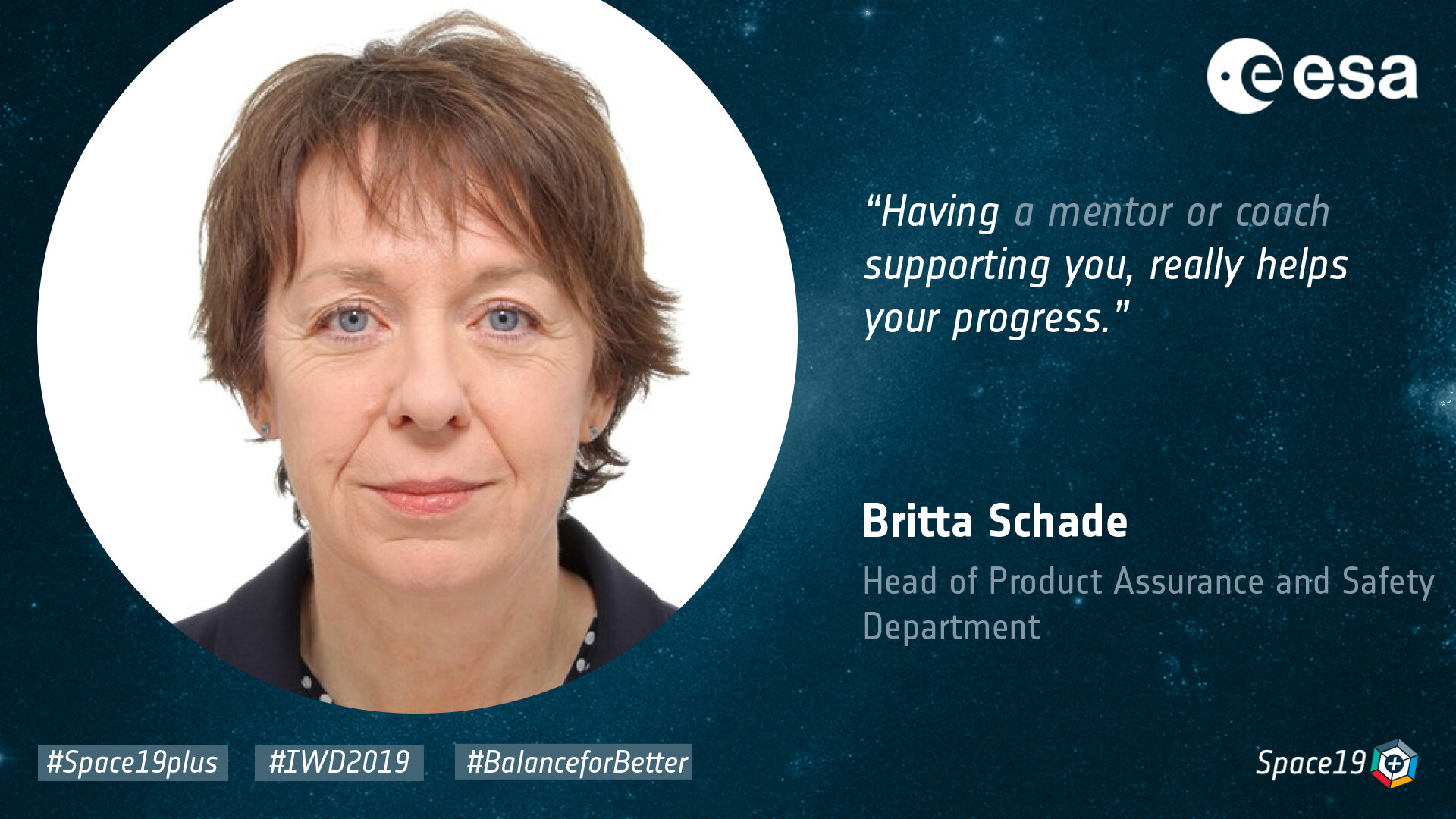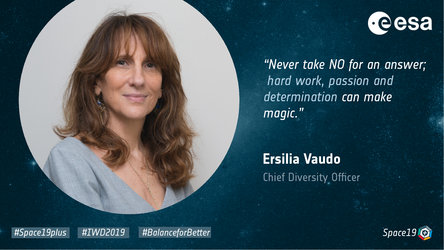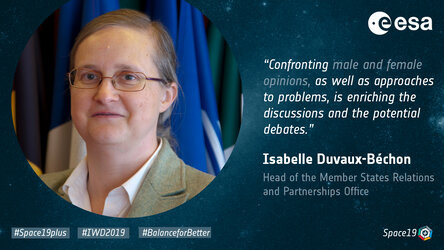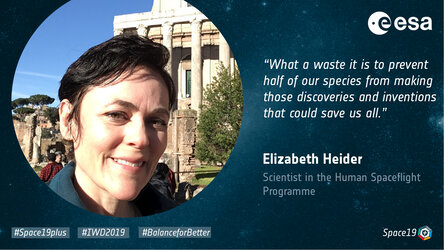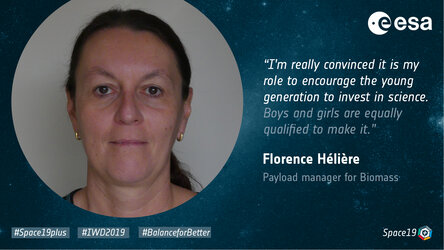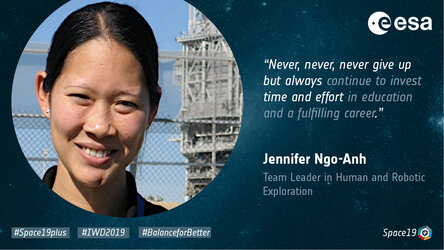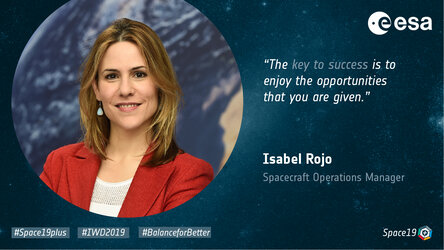Britta Schade, ESA Head of Product Assurance and Safety Department
Please give a brief description of your duties at ESA.
My responsibility as Head of the Product Assurance and Safety Department is to exercise an independent product assurance function, with the corporate authority to request corrective actions to projects.
I am responsible for a team of 123 people in my department and a further 55 people integrated into ESA projects.
Our team safeguards the quality in European space missions through internal and external reviews and audits and by sharing our knowledge across the Agency.
What inspired you to pursue a career in science and engineering and what motivated you to join ESA specifically?
At school, natural sciences and mathematics were my favourite topics. For me, the only difficulty I had was to decide which course of study to enrol in. I started chemistry first and then shifted to geosciences, as the content is so manifold. I am convinced that curiosity and an open mind are the most important attributes for a scientist.
I started my space career as a student in 1991. It was only a small step from working for a national space agency to starting work with ESA.
I was excited to work in an international environment and have a frequent exchange of ideas on all projects. The diversity of the team and challenges of the task at hand were the main reasons for me to change.
Did you encounter gender barriers on your way to becoming a scientist / engineer?
The higher I climbed the ladder, the bigger the barriers were. Most of my interview boards were male-dominated. On most of the boards I belong to now, I am the only woman. It would be nice to have female company!
As in many organisations, in the standard ESA forms, you will find only the option ‘chairman’, but not chairwoman or a neutral description like chairperson or just chair. I am chairwoman of several boards now, but cannot change the format manually.
What progress have you seen in addressing the gender imbalance in your profession through equal-opportunity measures in recent years?
I am only aware of the activities of ESA’s Diversity Office and ESA’s engagement in Women in Aerospace Europe.
On a national level, the German Aerospace Center – as part of the Helmholtz Community – has started with a quota to help women in STEM (science, technology, engineering and mathematics). I have been part of a German diversity network to discuss the diversity issue with industry and public organisations, and have been a mentor/coach for both women and men. In addition, I am a member of Women in Aerospace Europe. Networking is a key topic for me.
In the German Federal Ministry for Education and Research, more than 50% of employees are women. In addition to this, Germany now has the fourth female Federal Minister for Education and Research in succession.
Also, Germany has requested a quota of 30% women in management positions at DAX-listed companies. In universities, it still looks a bit different though.
What are, in your view, three measures that could make a difference in supporting a work-life balance and at the same time equal career opportunities?
More flexibility – people do not have to work from an office to do a good job. On the contrary, writing a strategy or reviewing papers could be more efficient if you do it from home. With WebEx and Skype in place, there is no reason to be restrictive. However, it is also a matter of trust.
Offering jobs for both partners – nowadays women want to combine kids and career. I have a few good examples in my direct environment where this is working.
Look actively for promising female candidates and invite them to apply for a job – I would like to see more female applicants for management positions!
What advice would you give to a girl or young woman who is considering a career in science and engineering?
From my experience, it is beneficial to start early with work experience or as a trainee to see if the working environment will really fulfil your expectations. I also like the International Day of Women and Girls in Science, when girls can experience for themselves what it is like to be in an engineering environment. My colleagues also enjoy the fact that they can bring their kids with them to work, to show them their daily working life.
Finally, I think it is beneficial to become a member of a women’s network in science and engineering. They have mentoring programmes for students and young professionals. Having a mentor or coach supporting you really helps your progress.
I was lucky enough to be part of a mentoring programme myself.


